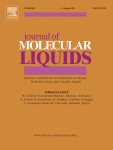|
Autors/es
Alkhatib, Ismail I.I.; Bahamon, Daniel; Llovell, Fèlix ; Abu-Zahra, Mohammad R.M.; Vega, Lourdes F. ; Abu-Zahra, Mohammad R.M.; Vega, Lourdes F.
|
Abstract
In the quest for green and sustainable solvents, deep eutectic solvents (DESs) have emerged as an attractive and multipurpose material with demonstrated applicability in various chemical processes. The versatility of these solvents is centralized around their unique molecular structure and chemical properties. Knowledge of thermodynamic properties and phase equilibria of these solvents plays a pivotal role in process design and development for their intended applications. Their highly non-ideal behaviour (in pure form or mixtures) have encouraged the study of these systems from different modelling perspectives; nonetheless, establishing a unified framework for modelling DESs remains a daunting task. Consequently, several theoretical approaches have been developed over the past years towards understanding the molecular nature and interactions of DES and their mixtures with other substances along with the prediction of their phase equilibria and thermodynamic properties with varying degrees of success depending on the accuracy of these approaches and their theoretical basis. Moreover, the lack of guidelines of the selection of an appropriate modelling approach for the prediction of the aforementioned properties of DESs remains an issue to be resolved. This contribution is focused on presenting a review and a concise classification of the different theoretical procedures implemented to the description of the thermodynamic behaviour of DESs and their mixtures in various industrial applications. This work deals with modelling approaches with varying degrees of refinement and rigor, highlighting their major capabilities and limitations in the context of application, complexity and development. Moreover, a general guideline for the selection of a suitable modelling approach for process development and simulation is presented based on the framework of the application. Challenges, perspectives and future way forward are also provided.
|

WoS
Scopus
Altmetrics
 
|
